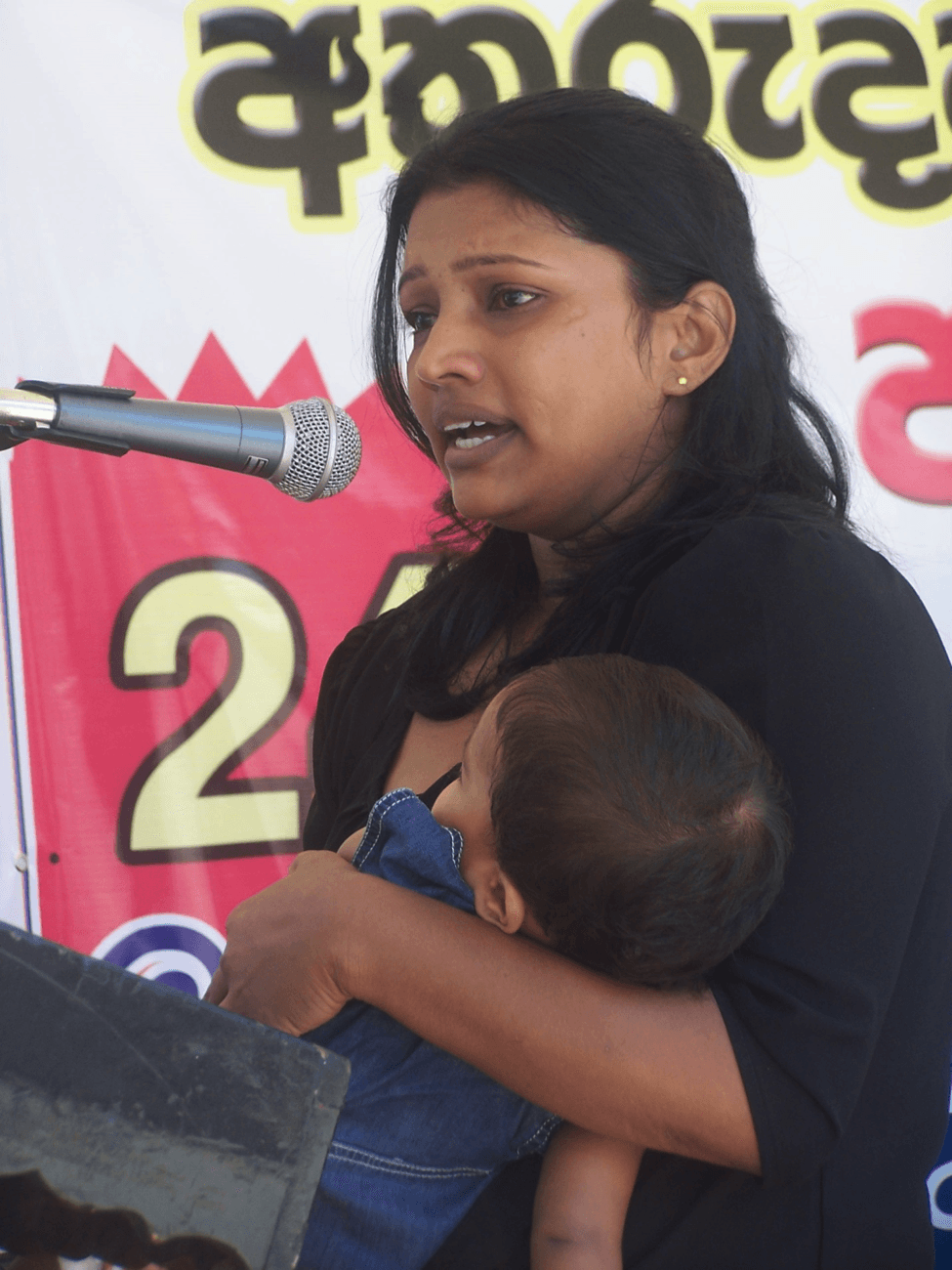- Category: Statements
Sixty-six years ago today, the United Nations General Assembly adopted the Universal Declaration of Human Rights, a common standard for all peoples and nations to achieve and enjoy in terms of their civil, political, economic, social, and cultural rights. Since then, nine human rights treaties have been adopted and ratified by many States Parties to make human rights claims legally binding and enforceable.
The International Convention for the Protection of All Persons from Enforced Disappearance (CAED), which entered into force on 23 December 2010 is one of these nine treaties where a new right is recognized:
The Right Not to be Disappeared. As of 12 September 2014, the Committee on Enforced Disappearance reported that this treaty has 43 States Parties and 94 signatories. In Asia, only Cambodia, Iraq and Japan ratified the Convention while Laos, Lebanon, Mongolia and Thailand signed it. Of these said Asian States Parties, only Japan recognized the competence of the UN Committee on Enforced Disappearances in terms of inter-state complaints.
- Category: Statements
10th December is universally recognised as International Human Rights Day. International Human Rights Day is being observed worldwide at a time when incidents of human rights violations in Bangladesh have reached an alarming level. The Awami League resumed power through controversial Parliamentary Elections on January 5, 2014 that most major political parties boycotted; and a very small percentage of people voted at. The January 2014 Parliamentary Elections are generally believed to be bereft of the peoples’ mandate. 153 candidates from the ruling Awami League and its alliance were elected unopposed out of a total of 300 constituencies even before the elections were held. An Election Commission- that was made subservient by selecting election commissioners through a selection committeeconducted the elections.
- Category: Statements
On the occasion of the Fourth Congress of IKOHI, the other eleven member-organizations of the Asian Federation Against Involuntary Disappearances (AFAD) congratulate all of you for your steadfastness in the continued search for truth and justice for your disappeared loved ones.
IKOHI’s members come from many generations of victims, dating back to the 1965-1966 massacres under the command of Gen. Suharto. Many of you are still here and AFAD salutes your courage, determination and hope. With your presence and support, whether big or small, few or far between, the succeeding generations are inspired to keep on with the struggle, for impunity still pervades in the country.
- Category: Statements
On September 26, a group of students travelling to Mexico City was attacked by police forces in the southern state of Guerrero. The incident left 6 dead and 43 missing. More than 40 days after the disappearance of the students, suspected gang members confessed to killing the missing students. Members of the said gang admitted to burning the bodies for 15 hours and throwing the remains in a nearby river.
This tragedy puts yet another punctuation mark on Mexico’s long history of human rights violations. It can only by presumed what kind of torture these students were exposed to after they were abducted and before they were handed over to the Guerreros Unidos cartel to be massacred. Hence, in one tragic incident, the Mexican state is potentially responsible for Enforced Disappearance, Extra-Judicial Killings, and possibly, Torture.
- Category: Statements
 The Asian Federation Against Involuntary Disappearances (AFAD) calls on the Inspector General of the Police to investigate and punish those responsible in the abduction, intimidation and eventual release of Mayuri Inoka, wife of a disappeared last 1 November in Anuradhapura, a district in the North Central Province of Sri Lanka.
The Asian Federation Against Involuntary Disappearances (AFAD) calls on the Inspector General of the Police to investigate and punish those responsible in the abduction, intimidation and eventual release of Mayuri Inoka, wife of a disappeared last 1 November in Anuradhapura, a district in the North Central Province of Sri Lanka.
AFAD also asks the Sri Lankan public especially those who value life, truth and justice to help secure Mayuri from further intimidations and protect her and her twins from possible danger.
Mayuri was on her way to the city to buy milk for her 11-month old twins when according to her, well-built men boarded her three wheeler vehicle. A gun was pointed on her face, and then she was blindfolded with her hands tied behind her back. Later she was shoved into a van where she was continually threatened of possible disappearance if she will not stop her campaign to find her husband. She was eventually released an hour and a half later.
- Category: Statements

Loss comes in many ways. All Saints’ Day highlights the loss arising from the death of loved ones. Visiting cemeteries or columbaria in the company of other relatives of departed kin somehow eases the pain of loss.
But we who have lost our loved ones to enforced disappearance have no remains to bury or cremate – no graves or cinerary vaults to seal the certainty of our kin’s fate.
As we perpetually equivocate between hope and despair, closure becomes as elusive as justice. To calm our unsettledness, we draw support and strength from other families and friends of the disappeared.
- Category: Statements
On the third anniversary of the abduction of Sumlut Roi Ja, an ethnic Kachin woman from Burma, we, the undersigned organizations, call on the Burmese government to thoroughly investigate her enforced disappearance and hold the perpetrators accountable.
On 28 October 2011, Burma Army soldiers from Light Infantry Battalion 321 abducted 28-year-old Sumlut Roi Ja along with her husband and father-in-law from their family farm near Hkaibang Village, Momauk Township, Kachin State.
- Category: Statements
“We join with the families and friends of victims of the disappeared of Sri Lanka in honoring the memories of their loved ones as they gather today to commemorate the National Day of the Disappeared”, Mary Aileen Bacalso, Secretary General of the Asian Federation Against Involuntary Disappearances (AFAD), said in a statement.
The memorial is an important and sacred site for the families to meet annually, share their stories of perseverance and little victories in the search for truth and justice despite very difficult circumstances under a repressive government. It is where they can collectively honor the memories of their disappeared loved ones. It is also a manifestation of the Sri Lankan government’s dark human rights record both of the past and of the present.
